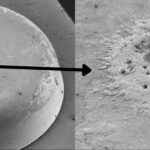Now Reading: Inverters and power modules are key players in energy management – but testing methods need improvement
-
01
Inverters and power modules are key players in energy management – but testing methods need improvement
Inverters and power modules are key players in energy management – but testing methods need improvement

The reliability of PV inverters is crucial, requiring a lifespan of 15 to 25 years with minimal failures. They must function effectively within a wide temperature range, typically from -40°C to +60°C, and have high protection ratings like IP65 to guard against dust and water ingress. Additionally, inverters should handle short-term overloads and meet EMC standards. Diagnostic and monitoring functions are necessary for failure detection, along with high efficiency to minimize energy losses. Adherence to safety standards like IEC 62109 is vital for safe operation.
Research has shown that the DC film capacitor is a key component under heavy stress, with corrosion being a predominant failure mechanism. Standardized climate tests are used to estimate the service life of these capacitors. Accelerated tests at high temperature and humidity levels reveal degradation mechanisms that differ from field components. Moisture ingress simulations demonstrate the need to adapt accelerated tests based on the design of the film capacitors.
Silicone gel testing is also important for power modules in PV inverters to protect against moisture exposure. The gel’s low water absorption but high permeation rate can lead to corrosion processes under humid conditions. Electrochemical migration can occur, affecting the reliability of materials. Analyses on silicone gel power modules after years of operation reveal the accumulation of contaminants, influencing the inverter’s corrosion resistance.
Further research and test developments are needed to understand the impact of day/night cycles and external contamination on the reliability of PV inverters. Addressing these factors will help ensure the long-term performance and safety of these critical components.






